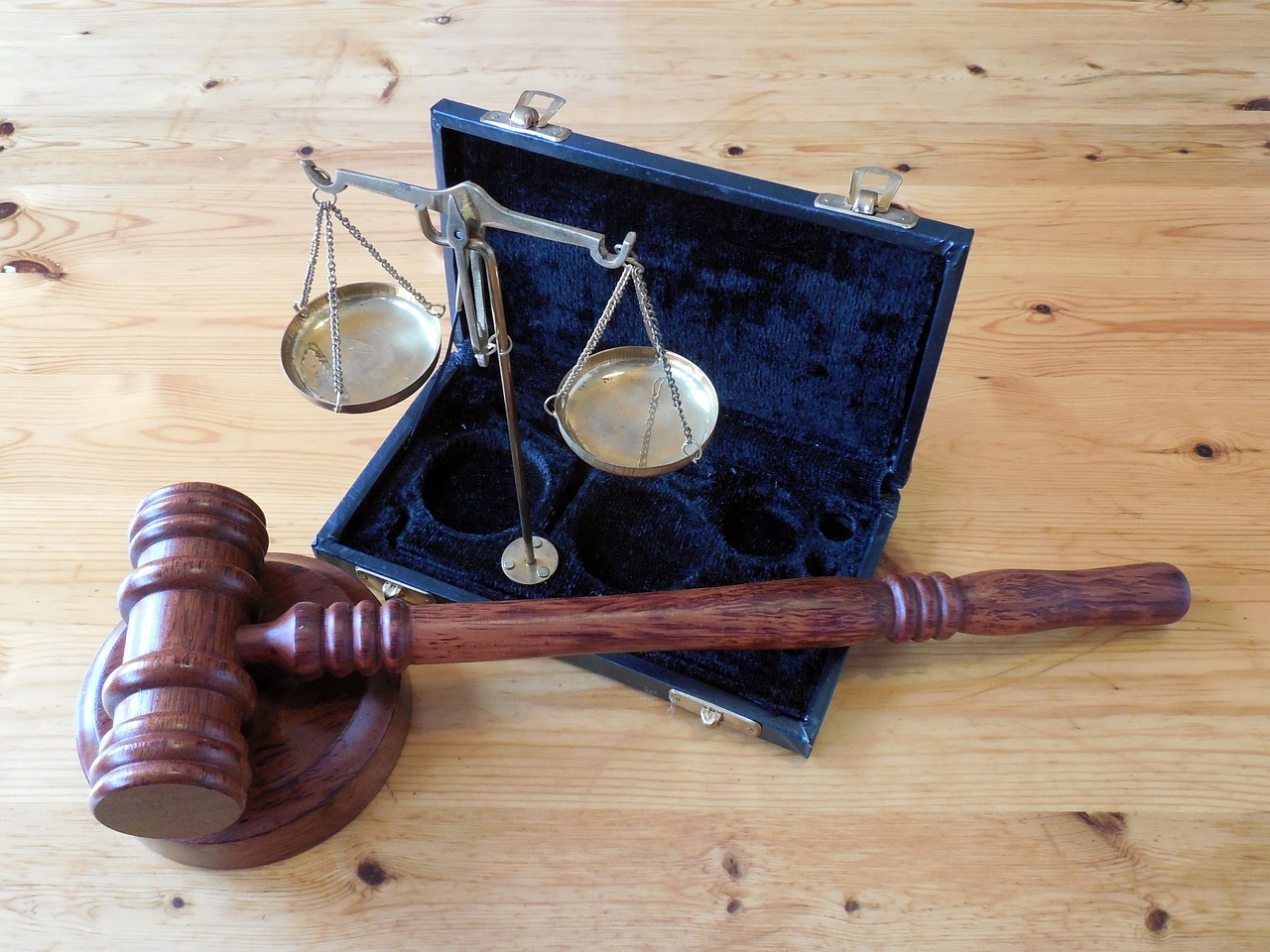Have you ever thought about the process that unfolds when someone sustains an injury and chooses to pursue legal assistance?
Personal injury litigation involves navigating through complex legal procedures while negotiating terms and making challenging decisions. Dealing with personal injury litigation yourself most likely makes you feel burdened by the entire procedure.
The good news?
Proper legal guidance enables you to successfully navigate through the intricate legal system to obtain deserved compensation.
Contents
Inside This Guide:
- Understanding Personal Injury Claims
- Key Challenges in Personal Injury Cases
- The Role of a Personal Injury Lawyer
- Documenting Your Case Effectively
- Settlement vs. Trial: Making the Right Choice
Understanding Personal Injury Claims
Personal injury claims include various cases where individuals experience harm because of someone else’s negligent or deliberate behavior.
These claims typically fall into several categories:
- Vehicle collisions involving cars, motorcycles, and trucks make up motor vehicle accidents.
- Workplace injuries – Falls and equipment malfunctions
- Public liability incidents happen when people slip in shopping centers or get injured in public areas.
- Medical malpractice occurs when healthcare professionals provide inadequate medical care to their patients.
- Product liability – Injuries caused by defective products
To pursue a personal injury claim you need to collect evidence, submit necessary paperwork, negotiate with insurance companies and potentially proceed to court.
At this point people frequently make an essential error…
They try to handle everything themselves.
Personal injury law is incredibly complex. Insurance companies employ legal teams whose purpose is to keep payouts as low as possible. If you lack proper representation you may only receive a small portion of the compensation you deserve.
Working with an experienced litigation lawyer can make all the difference in navigating these complexities and ensuring your rights are protected.
Key Challenges in Personal Injury Cases
Unique challenges inherent to personal injury cases create significant obstacles during litigation.
One major hurdle is proving negligence. You must provide evidence that:
- The opposing party was legally responsible for maintaining your safety.
- They breached that duty
- Their breach directly caused your injury
- You suffered damages as a result
Proving these elements proves to be exceptionally difficult during actual cases.
Accident cases involving vehicles present unclear situations when it comes to identifying who was responsible. Insurance companies frequently attempt to place responsibility for the accident on you while multiple elements may have contributed to the accident.
Medical evidence presents another challenge. Proper documentation connecting your injuries with the incident is essential for your case. Lack of complete documentation could significantly weaken your legal claim.
Time limitations are also crucial. The timeframe to submit a claim in Australia usually spans from one to three years based on your specific location and claim category. If you do not meet the deadline you will completely forfeit your right to any compensation.
The most frustrating part of personal injury cases is the battle with insurance companies. Insurance companies aim to reduce their payouts through methods such as:
- Offering quick but inadequate settlements
- Delaying the process hoping you’ll give up
- Disputing the severity of your injuries
- Arguing your injuries existed before the accident
The Role of a Personal Injury Lawyer
What responsibilities does a personal injury lawyer take on? Far more than you might think.
They deliver specialized legal navigation through complicated procedures. The field of personal injury law encompasses many intricate procedures alongside strict deadlines. A proficient attorney maintains your case progression while protecting you from missing important chances.
The lawyer manages every interaction with both insurance companies and the opposing legal team. Your lawyer shields you from making damaging statements throughout your case.
Evidence gathering is another crucial role. Your lawyer will:
- Collect medical records and bills
- Interview witnesses
- Obtain police and incident reports
- Work with experts to reconstruct accidents
They’ll also accurately value your claim. Numerous individuals do not realize the full financial value of their claim. A personal injury lawyer considers:
- Current and future medical expenses
- Lost wages and earning capacity
- Pain and suffering
- Rehabilitation costs
- Impact on quality of life
The Personal Injury Commission of NSW reported that 93% of workers’ compensation disputes and 71% of motor accident damages disputes reached resolution without formal determination during 2022-23. The high resolution rate demonstrates how skilled legal representation brings value.
Documenting Your Case Effectively
The strength of your personal injury claim depends on the quality of your documentation. Without adequate evidence serious injuries may not receive just compensation.
Start with your medical records. Medical records stand as the fundamental support for any personal injury claim.
- Emergency room visits
- Doctor’s diagnoses and treatment plans
- Specialist consultations
- Therapy sessions
- Medical bills
Create a record of the effects your injuries have on your everyday life.
- Physical limitations
- Pain levels
- Missed work days and lost income
- Canceled activities
- Emotional impacts
Photos and videos provide powerful evidence:
- Your injuries at different healing stages
- The accident scene
- Property damage
- Hazardous conditions that contributed to your injury
A pain journal proves especially useful by maintaining a detailed account of your suffering that goes beyond standard medical records.
In the 2022-23 period Australia recorded 1.9 million injury-related emergency department presentations alongside 549,000 hospital admissions. The presented statistics show just how frequent injury cases occur and demonstrate why documenting them correctly remains crucial.
Settlement vs. Trial: Making the Right Choice
A key decision in your personal injury case involves choosing between accepting an offer to settle or taking your case to trial.
Settlement benefits include:
- Settlements usually conclude within several months.
- You will receive definite compensation without the possibility of leaving empty-handed.
- Lower legal costs – Trials require significant expense
- Privacy – Settlement details remain confidential
- Settlement avoids the emotional distress associated with a trial process
Settlement agreements commonly provide lower financial awards compared to what a lawsuit verdict might award. Insurance companies’ settlement proposals generally fall below the total value of your claim.
Taking your case to trial has advantages:
- Trials could lead to greater financial awards for pain and suffering damages.
- Public accountability – Holding negligent parties responsible
- Full vindication – Having your day in court
But trials come with risks. The trial process offers no certainty of success yet demands considerable emotional energy and substantial financial and temporal investments.
During the 2022-23 period the NSW Personal Injury Commission processed 15,526 dispute applications and concluded 17,086 cases. This resolution rate demonstrates that alternative dispute methods show growing effectiveness.
Pulling It All Together
Navigating personal injury litigation is not simple. Navigating personal injury litigation becomes overwhelming due to a combination of legal complexities, emotional stress and financial pressure.
You can achieve success in this process and obtain deserved compensation through adequate knowledge and expert guidance.
Remember these key takeaways:
- Documentation is crucial – Start collecting evidence immediately
- Legal deadlines exist so it is essential to contact a lawyer without delay.
- The outcome of your case depends heavily on the lawyer you choose to represent you.
- A settlement isn’t always the optimal solution so work with your lawyer to evaluate all available choices.
- The importance of mental health is gaining recognition through the increasing acknowledgment of psychological injuries in recent trends.
Personal injury cases are rarely straightforward. Specialized knowledge is necessary because every case contains its own distinct features.
Understanding legal procedures and teaming up with seasoned professionals enables successful navigation through intricate personal injury cases.
Through an effective legal strategy you can obtain the justice and compensation you deserve which enables you to concentrate on your recovery and continue living your life.




